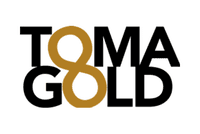The Conversation (0)
Could Goldcorp’s (NYSE:GG,TSX:G) hostile takeover bid for Osisko Mining (TSX:OSK) mean the beginning of a fresh round of mergers and acquisitions (M&A) in what has been a quiet market for mining tie-ups?
Could Goldcorp’s (NYSE:GG,TSX:G) hostile takeover bid for Osisko Mining (TSX:OSK) mean the beginning of a fresh round of mergers and acquisitions (M&A) in what has been a quiet market for mining tie-ups? Likely that won’t happen right away, but the bid is a sign that the gold majors are starting to shop around after a year spent cutting costs and taking care of their own balance sheets.
Indeed the $2.6 billion bid for Montreal-based Osisko, the biggest in over a year, comes as a bit of a surprise considering that major gold companies, including Goldcorp —which booked a US$1.93-billion loss in the second quarter after taking a huge writedown on its Penasquito mine in Mexico — have been slashing costs like mad and dumping losing assets amid a lower gold-price environment.
Some, like its main rival Barrick Gold (NYSE:ABX,TSX:ABX), are in no position to make acquisitions, but Goldcorp has survived the carnage of 2013 better than most. As Gary Lampier writes in the Edmonton Journal, Goldcorp has had to cut the life of Penasquito to 13 years from 16, but still has a strong growth profile and balance sheet with about $600 million in cash on hand. Prior to the gold price and equities meltdown, the company boasted that its cost per ounce to mine gold was lower than its competitors.
As the Financial Post notes, Goldcorp has had its eye on Osisko; a few years ago it acquired a 10 percent stake in the company whose flagship project is Canadian Malarctic. The mine with 10 million gold ounces in reserves began producing in May 2011 and has the capacity to pour over 500,000 ounces annually over its 16-year life.
Goldcorp already has its Éléonore development project in Quebec — targeted to produce at the end of this year — and is active in the Timmins gold camp near Malarctic. Owning Malarctic would make the company the largest gold producer in the Eastern Canadian province. But Goldcorp in 2011 sold its Osisko shares for $530 million, which in retrospect was a smart business decision because the shares have fallen in value along with most other gold equities.
In an interesting twist, the FP revealed yesterday that Osisko refused to entertain a number of friendly offers from Goldcorp over the past five years, forcing the world’s second largest gold producer to “go hostile” with a bid that some say undervalues the company.
David West, a gold mining analyst at Salman Partners, told the Journal that Goldcorp’s $5.95 a share offer, even though it represents a 15 percent premium, may not be the last offer on the table.
“Osisko does have some tremendous assets, so I think there’s a really good chance at least one other company might come in with an offer.”
On the other hand, TD securities analyst Greg Barnes was quoted as saying that a rival bid is unlikely because other senior gold miners are struggling with “heavier balance sheets and generally weaker multiples” relative to Goldcorp.
As for whether the bid is the start of others in the beaten-down gold mining sector where most gold companies can be bought for a pittance of what they were worth two or three years ago, West was circumspect, noting the difficult environment that producers are still finding themselves in.
He told the Journal that with many majors still “awash in debt” and absorbing writedowns they made before 2011, he doesn’t see a new round of acquisitions beginning until the second half of 2014.
If that happens, expect junior companies to benefit, says Paul Knight, a Barclays vice chairman and co- head of global metals and mining, who said in the first week of January that producers are being tempted to replace output they lost when they sold or curtailed less-profitable mines.
“Majors who have done portfolio optimization will look at some of the juniors and say, ‘Here’s a chance for us to acquire a potentially better asset than we’ve sold and to mitigate the loss of production,’” Knight told Bloomberg.
Potential M&A targets include Pretium Resources (NYSE:PVG,TSX:PVG) and Torex Gold (TSX:TXG), states the article.
And according to the news outlet, now is the time for majors to be buying, with gold equities at their cheapest to book value in two decades.
Bloomberg further notes that large miners may be better positioned for acquisitions than in 2013, having cut costs and freed up cash.
“The 10 biggest producers by sales, led by Barrick Gold Corp., may generate combined free cash flow of $4.17 billion this year, compared with a negative $1.74 billion in 2013, according to analysts’ estimates compiled by Bloomberg. That would be the highest for the group in at least eight years, the data show.”
The bottom line for investors? While a revving up of mining M&A is probably not going to happen in the next month or two, noticing such market-moving events is helpful in determining the direction the sector may be taking. It’s worth noting that after the Goldcorp offer was tabled yesterday, shares in Detour Gold (TSX:DGC), Argonaut Gold (TSX:AR), Primero Mining (NYSE:PPP,TSX:P), Agnico Eagle (NYSE:AEM,TSX:AEM), Eldorado Gold (NYSE:EGO,TSX:ELD), Pretium Resources and Seabridge Gold (NYSE:SA,TSX:SEA) all jumped at least four per cent on the TSX, reported The Edmonton Journal. That’s a lot better than the steep losses suffered by most gold equities in the last 12 months, and a ray of hope that a turnaround may be on its way.
Securities Disclosure: I, Andrew Topf, hold an equity position in Goldcorp.
Indeed the $2.6 billion bid for Montreal-based Osisko, the biggest in over a year, comes as a bit of a surprise considering that major gold companies, including Goldcorp —which booked a US$1.93-billion loss in the second quarter after taking a huge writedown on its Penasquito mine in Mexico — have been slashing costs like mad and dumping losing assets amid a lower gold-price environment.
Some, like its main rival Barrick Gold (NYSE:ABX,TSX:ABX), are in no position to make acquisitions, but Goldcorp has survived the carnage of 2013 better than most. As Gary Lampier writes in the Edmonton Journal, Goldcorp has had to cut the life of Penasquito to 13 years from 16, but still has a strong growth profile and balance sheet with about $600 million in cash on hand. Prior to the gold price and equities meltdown, the company boasted that its cost per ounce to mine gold was lower than its competitors.
As the Financial Post notes, Goldcorp has had its eye on Osisko; a few years ago it acquired a 10 percent stake in the company whose flagship project is Canadian Malarctic. The mine with 10 million gold ounces in reserves began producing in May 2011 and has the capacity to pour over 500,000 ounces annually over its 16-year life.
Goldcorp already has its Éléonore development project in Quebec — targeted to produce at the end of this year — and is active in the Timmins gold camp near Malarctic. Owning Malarctic would make the company the largest gold producer in the Eastern Canadian province. But Goldcorp in 2011 sold its Osisko shares for $530 million, which in retrospect was a smart business decision because the shares have fallen in value along with most other gold equities.
In an interesting twist, the FP revealed yesterday that Osisko refused to entertain a number of friendly offers from Goldcorp over the past five years, forcing the world’s second largest gold producer to “go hostile” with a bid that some say undervalues the company.
David West, a gold mining analyst at Salman Partners, told the Journal that Goldcorp’s $5.95 a share offer, even though it represents a 15 percent premium, may not be the last offer on the table.
“Osisko does have some tremendous assets, so I think there’s a really good chance at least one other company might come in with an offer.”
On the other hand, TD securities analyst Greg Barnes was quoted as saying that a rival bid is unlikely because other senior gold miners are struggling with “heavier balance sheets and generally weaker multiples” relative to Goldcorp.
As for whether the bid is the start of others in the beaten-down gold mining sector where most gold companies can be bought for a pittance of what they were worth two or three years ago, West was circumspect, noting the difficult environment that producers are still finding themselves in.
He told the Journal that with many majors still “awash in debt” and absorbing writedowns they made before 2011, he doesn’t see a new round of acquisitions beginning until the second half of 2014.
If that happens, expect junior companies to benefit, says Paul Knight, a Barclays vice chairman and co- head of global metals and mining, who said in the first week of January that producers are being tempted to replace output they lost when they sold or curtailed less-profitable mines.
“Majors who have done portfolio optimization will look at some of the juniors and say, ‘Here’s a chance for us to acquire a potentially better asset than we’ve sold and to mitigate the loss of production,’” Knight told Bloomberg.
Potential M&A targets include Pretium Resources (NYSE:PVG,TSX:PVG) and Torex Gold (TSX:TXG), states the article.
And according to the news outlet, now is the time for majors to be buying, with gold equities at their cheapest to book value in two decades.
Bloomberg further notes that large miners may be better positioned for acquisitions than in 2013, having cut costs and freed up cash.
“The 10 biggest producers by sales, led by Barrick Gold Corp., may generate combined free cash flow of $4.17 billion this year, compared with a negative $1.74 billion in 2013, according to analysts’ estimates compiled by Bloomberg. That would be the highest for the group in at least eight years, the data show.”
The bottom line for investors? While a revving up of mining M&A is probably not going to happen in the next month or two, noticing such market-moving events is helpful in determining the direction the sector may be taking. It’s worth noting that after the Goldcorp offer was tabled yesterday, shares in Detour Gold (TSX:DGC), Argonaut Gold (TSX:AR), Primero Mining (NYSE:PPP,TSX:P), Agnico Eagle (NYSE:AEM,TSX:AEM), Eldorado Gold (NYSE:EGO,TSX:ELD), Pretium Resources and Seabridge Gold (NYSE:SA,TSX:SEA) all jumped at least four per cent on the TSX, reported The Edmonton Journal. That’s a lot better than the steep losses suffered by most gold equities in the last 12 months, and a ray of hope that a turnaround may be on its way.
Securities Disclosure: I, Andrew Topf, hold an equity position in Goldcorp.






